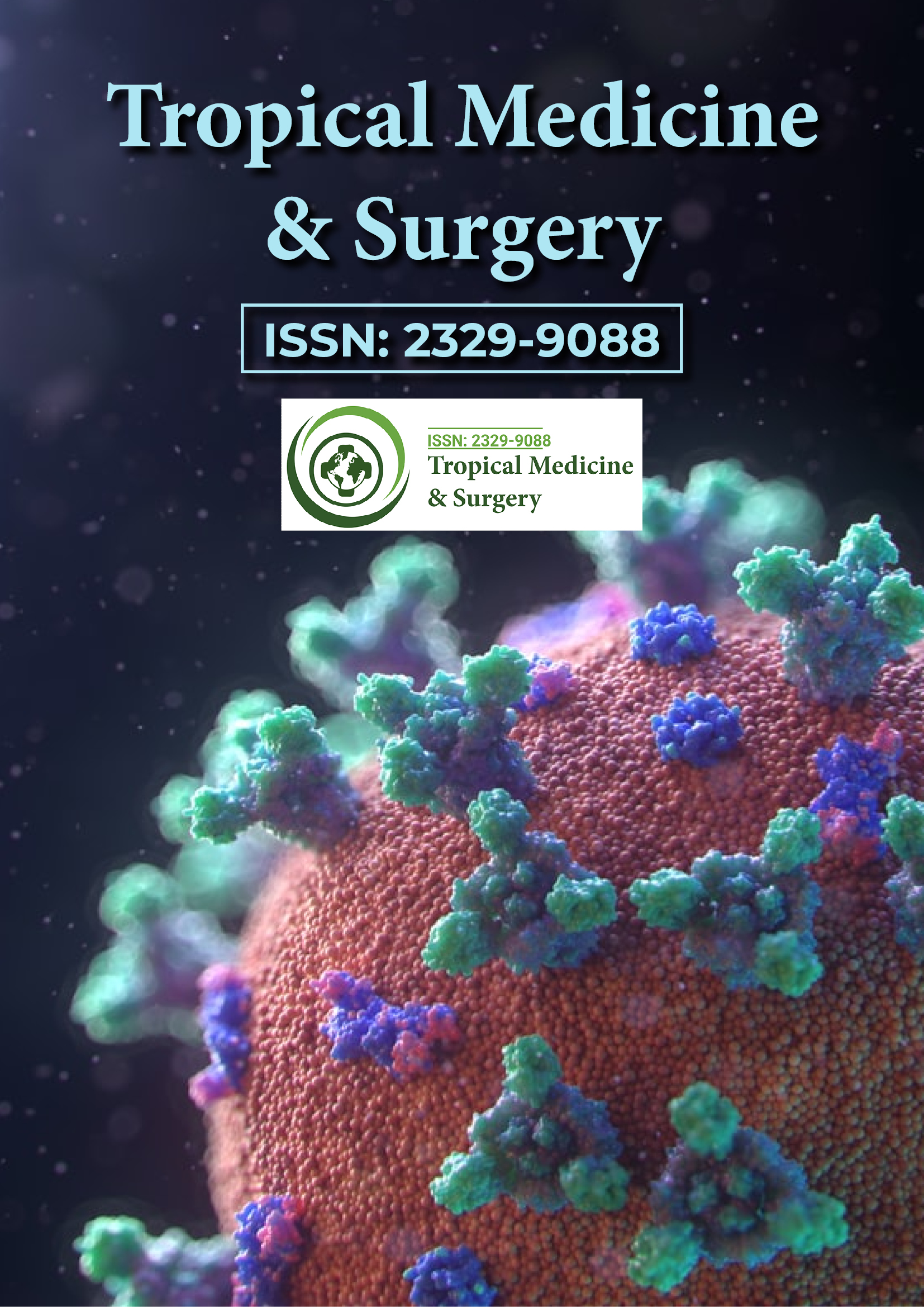Indexed In
- Open J Gate
- Academic Keys
- RefSeek
- Hamdard University
- EBSCO A-Z
- OCLC- WorldCat
- Publons
- Euro Pub
- Google Scholar
Useful Links
Share This Page
Journal Flyer

Open Access Journals
- Agri and Aquaculture
- Biochemistry
- Bioinformatics & Systems Biology
- Business & Management
- Chemistry
- Clinical Sciences
- Engineering
- Food & Nutrition
- General Science
- Genetics & Molecular Biology
- Immunology & Microbiology
- Medical Sciences
- Neuroscience & Psychology
- Nursing & Health Care
- Pharmaceutical Sciences
Commentary Article - (2022) Volume 10, Issue 1
A Note on Malaria and its Causes and Prevention
Patrick Beatrice*Received: 04-Jan-2022, Manuscript No. TPMS -22-257; Editor assigned: 06-Jan-2022, Pre QC No. TPMS-22-257 (PQ); Reviewed: 20-Jan-2022, QC No. TPMS-22-257; Revised: 24-Jan-2022, Manuscript No. TPMS-22-257(R); Published: 31-Jan-2022, DOI: 10.35248/2329-9088.22.10.257
Description
Malaria is a mosquito-borne infection that affects humans and other animals. Malaria usually causes symptoms such as fever, malaise, vomiting, and headaches. In severe cases, it can lead to yellowing of the skin, seizures, coma, or death. Malaria is a disease caused by parasites. Parasites infect humans by being bitten by infected mosquitoes. People with malaria are usually very sick with high fever and chills.
Signs and symptoms
Adults with malaria generally tend to revel in chills and fever- classically in periodic severe bouts lasting round six hours, observed via way of means of duration of sweating and fever relief-in addition to headache, fatigue, belly discomfort, and muscle pain. Children generally tend to have extra well known symptoms: fever, cough, vomiting, and diarrhea.
Initial manifestations of the disease-not unusual place to all malaria species-are much like flu-like symptoms, and might resemble different situations together with sepsis, gastroenteritis, and viral diseases. The presentation can also additionally consist of headache, fever, shivering, joint pain, vomiting, haemolytic anemia, and jaundice, haemoglobin withinside the urine, retinal damage, and convulsions.
Complications
Malaria has several serious complications. These include the development of shortness of breath, which occurs in up to 25% of adults and 40% of children with severe Plasmodium falciparum. Possible causes are metabolic acidosis, non-cardiac pulmonary edema, associated pneumonia, and respiratory compensation for severe anemia. Although rare in infants with severe malaria, acute respiratory distress syndrome occurs in 5-25% of adults and up to 29% of pregnant women. Coinfection of HIV and malaria increases mortality. Renal failure is characterized by black water fever, in which haemoglobin from dissolved red blood cells leaks into the urine.
Cerebral malaria
When blood cells filled with parasites block small blood vessels to the brain (cerebral malaria), the brain can swell or be damaged, brain malaria can cause seizures and coma.
Breathing problems
Accumulated fluid in your lungs (pulmonary edema) can make it difficult to breathe.
Organ failure
Malaria can damage the kidneys and liver and cause the spleen to rupture. Both of these conditions can be life-threatening.
Anemia
Malaria can result in not having enough red blood cells to oxygenate body tissue (anemia).
Low blood sugar
Severe forms of malaria can cause hypoglycaemia, similar to the common antimalarial drug quinine. Very low blood sugar levels can lead to coma or death.
Cause
Malaria is caused by single-celled parasites of the genus Plasmodium. Parasites most commonly infect humans with mosquito bites. When bitten by a mosquito, parasites invade human blood from the saliva of the mosquito. Parasites migrate to the liver, where they mature and multiply.
Prevention
Cover your skin. Wear pants and long-sleeved shirts. Tuck in your shirt, and tuck pant legs into socks.
Apply insect repellent to skin. Use an insect repellent registered by the Environmental Protection Agency. These include repellents containing DEET, Picaridin, IR3535, Oil of Lemon Eucalyptus (OLE). Do not use the spray directly on the face, do not use OLE or PMD products for children under the age of three.
Sleep under a net. Mosquito nets, especially those treated with pesticides such as permethrin, help prevent sleeping mosquito bites.
If you are traveling to a location where malaria is common, talk to your doctor a few months ago about taking medication before, during, and after your trip to protect yourself from malaria parasites. In general, the drugs used to prevent malaria are the same as those used to treat the disease. The medicine you take depends on where and how long you are traveling, and your own health.
Citation: Beatrice P (2022) A Note on Malaria and its Causes and Prevention. Trop Med Surg. 11:257.
Copyright: © 2022 Beatrice P. This is an open-access article distributed under the terms of the Creative Commons Attribution License, which permits unrestricted use, distribution, and reproduction in any medium, provided the original author and source are credited.
